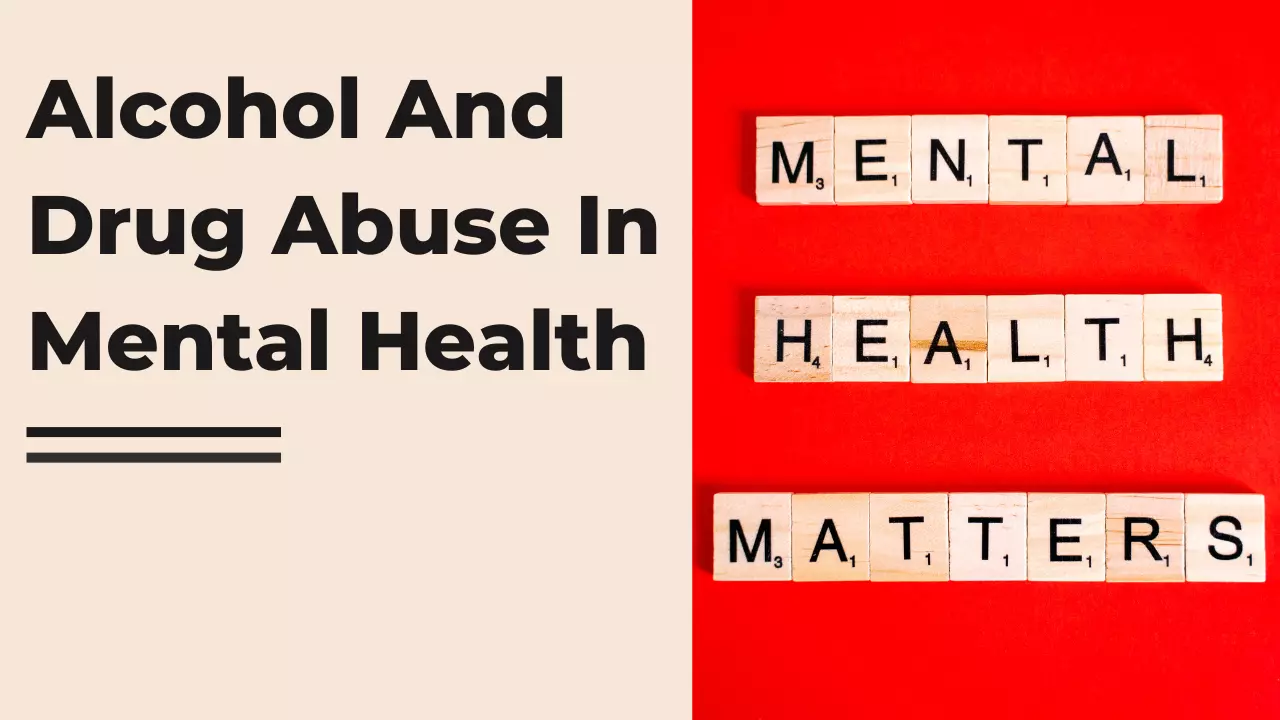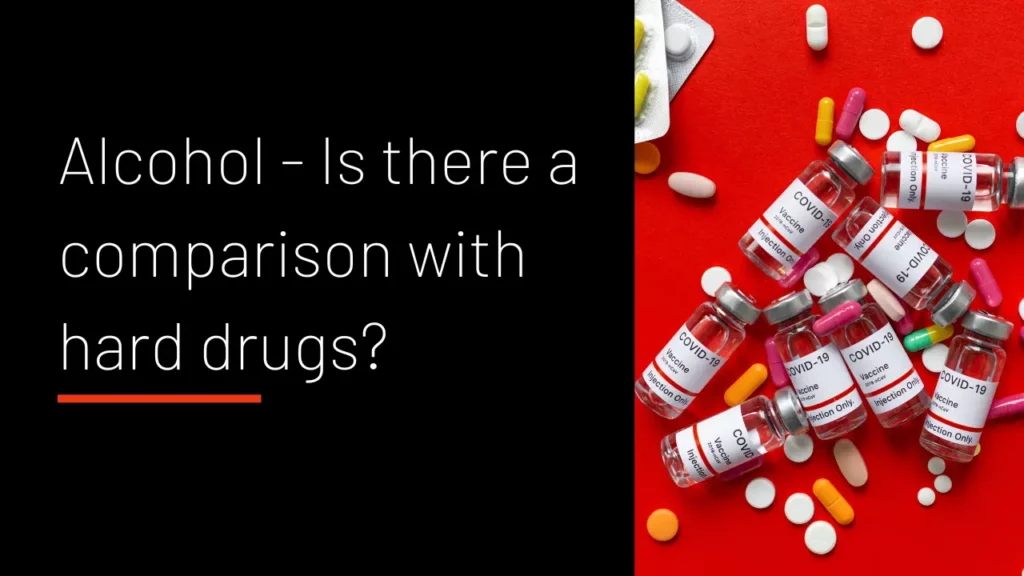
Alcohol and drug abuse can significantly impact mental health, leading to a harmful cycle that’s challenging to break, therefore to ensure good mental health is a crucial aspect of overall well-being. This article will explore effective strategies to prevent alcohol and drug abuse in the context of mental health.
Understanding the Connection
Alcohol and Drug Abuse and Mental Health Nexus: The relationship between alcohol and drug abuse and mental health is intricate. Substance abuse can exacerbate mental health issues and vice versa. It’s vital to comprehend this connection to formulate preventive measures effectively.
Identifying Risk Factors
Recognizing Vulnerabilities: Certain factors make individuals more susceptible to both substance abuse and mental health challenges. Genetic predisposition, trauma, and environmental influences can heighten the risk. Recognizing these vulnerabilities is the first step in prevention.
Creating Supportive Environments
Establishing a Safe and Supportive Space: Promoting mental health involves creating environments that foster emotional well-being. Encouraging open communication, reducing stigma, and providing resources for coping are fundamental to establishing a safe and supportive space for individuals struggling with mental health concerns.
Promoting Mental Health Education
Empowering Through Knowledge: Educating individuals about the correlation between substance abuse and mental health is essential. A well-informed community is better equipped to recognize signs of distress and intervene appropriately. Empowering individuals through knowledge can be a potent preventive tool.
Building Strong Support Systems
Family, Friends, and Community Involvement: A robust support system is a linchpin in preventing alcohol and drug abuse in mental health. Family, friends, and community involvement can offer a network of care that helps individuals navigate challenges and reduces the likelihood of turning to substances for solace.
Encouraging Healthy Coping Mechanisms
Teaching Effective Stress Management: One of the reasons individuals turn to alcohol and drugs is to cope with stress. Promoting healthy coping mechanisms, such as exercise, mindfulness, and creative outlets, is crucial in preventing reliance on substances as a way to manage life’s challenges.
Early Intervention to limit alcohol and Drug Abuse
Spotting Signs and Taking Action: Early detection of mental health concerns and substance abuse is paramount. Encourage individuals to seek help when needed and ensure that support systems are well-versed in recognizing signs of distress. Timely intervention can prevent escalation.
Promoting Accessible Mental Health Services
Breaking Down Barriers: Accessible mental health services are essential in preventing the co-occurrence of substance abuse and mental health issues. Breaking down financial, cultural, and social barriers to mental health care ensures that individuals can seek assistance without impediments.
Community Engagement Programs for Alcohol and Drug Abuse
Empowering Communities to Act: Engaging communities in preventive efforts is crucial. Establishing programs that educate, raise awareness, and provide resources can empower communities to take an active role in preventing alcohol and drug abuse in mental health.
Fostering Personal Resilience against Alcohol and Drug Abuse
Developing Inner Strength: Resilience is a powerful preventive factor. Encouraging individuals to develop personal resilience through positive self-talk, goal-setting, and emotional regulation equips them with the tools to navigate challenges without resorting to substance abuse.
Integrating Mental Health Into School Curricula
Education as a Preventive Tool: Incorporating mental health education into school curricula ensures that young individuals are equipped with the knowledge and skills needed to cope with stressors and challenges. Education is a potent tool for prevention.
Destigmatizing Mental Health for Alcohol and Drug Abuse
Shifting Cultural Perceptions: Reducing the stigma surrounding mental health is essential in preventing substance abuse. When individuals feel comfortable discussing mental health openly, they are more likely to seek help and less likely to turn to substances as a means of coping.
Government Policies and Regulations
Creating Supportive Legal Frameworks: Government policies play a pivotal role in preventing alcohol and drug abuse in mental health. Supportive legal frameworks that prioritize mental health care, destigmatize addiction and regulate substance use contribute significantly to prevention efforts.
Promoting Holistic Approaches
Addressing Mental Health and Substance Abuse Together: A holistic approach that considers mental health and substance abuse concurrently are essential. Integration of services, where mental health care and substance abuse treatment go hand in hand, is critical for comprehensive prevention.
In conclusion, preventing alcohol and drug abuse in mental health requires a multi-faceted approach. By understanding the intricate relationship between substance abuse and mental health, identifying risk factors, creating supportive environments, and implementing early intervention strategies, communities can foster resilience and empower individuals to lead healthier lives. Education, community engagement, destigmatization, and governmental support all play integral roles in ensuring a holistic and effective preventive framework. By addressing this issue comprehensively, we can strive towards a society where mental health is prioritized, and substance abuse is significantly reduced.
FAQs
Q1: What is considered alcohol abuse?
Alcohol abuse refers to the excessive or harmful use of alcohol, leading to negative consequences such as physical health problems, impaired judgment, and strained relationships. It involves a pattern of drinking that results in harm to one’s well-being.
Q2: How is drug abuse defined?
Drug abuse involves the misuse or overuse of substances, including illegal drugs or prescription medications, in a way that negatively impacts physical and mental health. It often leads to addiction and can have severe consequences on various aspects of life.
Q3: What are the signs of alcohol or drug abuse?
Signs may include changes in behavior, social withdrawal, neglect of responsibilities, physical health issues, mood swings, and a loss of interest in activities. Increased tolerance and withdrawal symptoms can also be indicators.
Q4: What is the difference between alcohol dependence and alcohol abuse?
Alcohol abuse refers to problematic drinking behavior, while alcohol dependence (alcoholism) involves physical and psychological dependence on alcohol. Dependence often includes tolerance, withdrawal symptoms, and an inability to control drinking.
Q5: Can drug and alcohol abuse be hereditary?
Yes, there is evidence suggesting a genetic predisposition to substance abuse. Individuals with a family history of alcohol or drug abuse may be at a higher risk, but environmental factors also play a significant role.
Q6: How can I help someone struggling with alcohol or drug abuse?
Encourage open communication, express concern without judgment, and suggest seeking professional help. Be supportive, and consider interventions such as counseling or rehabilitation programs.
Q7: What are the health risks associated with alcohol and drug abuse?
Health risks include liver damage, cardiovascular problems, mental health disorders, impaired cognitive function, increased risk of accidents, and a higher likelihood of addiction.
Q8: Are there effective treatments for alcohol and drug addiction?
Yes, various treatments exist, including counseling, support groups, medication-assisted therapy, and rehabilitation programs. The most effective approach often combines multiple strategies tailored to the individual’s needs.
Q9: Can someone recover from alcohol or drug addiction?
Yes, recovery is possible with the right support and treatment. Many individuals successfully overcome addiction and lead fulfilling, substance-free lives. It often requires commitment, professional help, and ongoing support.
Q10: How can I prevent alcohol and drug abuse?
Prevention involves education, open communication, promoting healthy coping mechanisms, and addressing underlying issues such as mental health concerns. Encouraging a supportive environment and seeking help early can also be crucial in prevention efforts.



